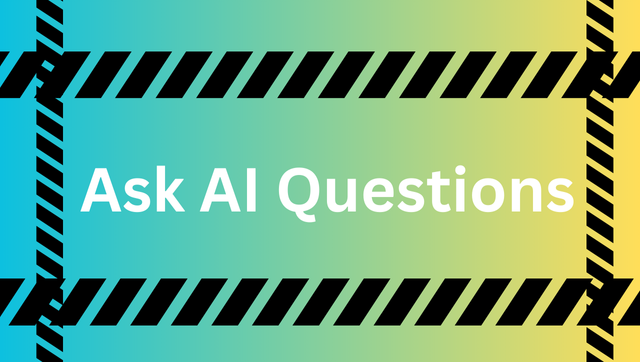Artificial Intelligence (AI) is transforming how people access information and solve problems. With AI-powered chatbots and virtual assistants, users can now get instant responses to almost any query. Whether it’s for business strategy, academic research, or daily life decisions, AI provides valuable insights and recommendations. But to get the best responses, you must know how to ask AI questions effectively. This guide explores how AI can assist in business, education, and everyday life, making it easier to find solutions quickly.
2. How to Ask AI Questions Effectively
Not all AI responses are accurate or useful. The key to getting high-quality answers is knowing how to frame your queries.
- Be specific – Instead of asking “What is marketing?”, ask “What are the best digital marketing strategies for startups?”
- Use clear language – AI works best with well-structured, simple queries.
- Provide context – Adding details like industry, subject, or purpose improves answer relevance.
- Avoid vague or open-ended queries – Instead of asking “How can I be successful?”, try “What are the top five habits of successful entrepreneurs?”
The better you ask AI questions, the more precise and valuable the responses will be.
3. Ask AI Questions for Business
a. Market Research and Data Analysis
AI can analyze vast amounts of data in seconds, helping businesses understand industry trends and customer behavior. You can ask AI questions like:
- “What are the latest e-commerce trends in 2025?”
- “How does consumer behavior change during an economic downturn?”
By leveraging AI tools, businesses can make data-driven decisions with greater accuracy.
b. AI for Productivity and Automation
Companies can streamline operations by using AI-powered automation tools. You can ask AI questions such as:
- “How can AI automate customer support in my business?”
- “What are the best AI tools for project management?”
By integrating AI into daily workflows, businesses can save time and improve efficiency.
c. Financial and Investment Decisions
AI assists in financial analysis by predicting market trends and offering investment insights. Some valuable AI questions include:
- “How can AI help reduce business expenses?”
With AI-powered financial tools, businesses can optimize budgeting, investments, and risk management.
4. Ask AI Questions for Education
a. AI as a Study Assistant
Students can enhance their learning experience by using AI as a virtual tutor. They can ask AI questions like:
- “Can you explain quantum mechanics in simple terms?”
AI-powered tools can offer personalized study plans, making learning more effective.
b. Research and Academic Writing
AI simplifies research by summarizing articles, generating topic ideas, and suggesting citations. You can ask AI questions like:
- “What are some unique research topics in artificial intelligence?”
- “Can AI help me write a literature review?”
By using AI for academic purposes, students and researchers can save time and improve the quality of their work.
c. AI for Language Learning
AI-powered tools make learning new languages easier by offering translations, pronunciation guidance, and grammar correction. Some helpful AI questions include:
- “What are the best AI tools for learning Spanish?”
- “How can AI help me improve my English writing skills?”
These tools provide interactive learning experiences, making language acquisition faster and more engaging.
5. Ask AI Questions for Daily Life
a. Personal Productivity and Planning
AI can assist with time management, goal setting, and daily task organization. Some AI questions to improve productivity include:
- “What’s the best daily routine for a productive lifestyle?”
- “How can AI help me manage my schedule more effectively?”
By using AI-driven productivity apps, individuals can optimize their time and stay focused on priorities.
b. AI for Shopping and Recommendations
AI helps users find the best deals, compare products, and make informed purchases. Useful AI questions include:
- “What are the best budget-friendly smartphones in 2025?”
- “Can AI recommend the best laptop for video editing?”
AI shopping assistants provide real-time comparisons, ensuring users get the best value for their money.
c. AI for Health and Well-being
AI-powered apps offer fitness recommendations, diet plans, and mental health support. You can ask AI questions like:
- “What is the best diet plan for weight loss?”
- “How can AI help improve my mental health?”
By leveraging AI in health and wellness, individuals can take proactive steps toward a healthier lifestyle.
6. Future of AI in Answering Questions
AI technology is continuously evolving, with improvements in Natural Language Processing (NLP) making AI responses more human-like. In the future, AI will become even more personalized, understanding users’ preferences and providing smarter recommendations.
People will be able to ask AI questions on virtually any topic and receive real-time insights tailored to their needs. However, ethical concerns, including data privacy and misinformation, will require ongoing attention.
7. Conclusion
AI is an incredible tool for answering questions across different aspects of life, from business and education to daily activities. Knowing how to ask AI questions effectively can help users get the most out of this technology.
As AI continues to advance, it will play an even greater role in decision-making, learning, and personal growth. Whether you’re a business owner, a student, or just someone looking for quick answers, AI is here to assist you. Start asking questions today and experience the future of knowledge at your fingertips!





Pingback: How to Turn Off Meta AI: A Step-by-Step Guide - AI Soft Global
Pingback: Hostinger Website Builder Features & Pricing: Is It Worth It? - AI Soft Global
Pingback: SEO Strategies That Work: How to Rank Higher - AI Soft Global
Pingback: Ask an AI Your Deepest Questions – Get Instant Answers - AI Soft Global